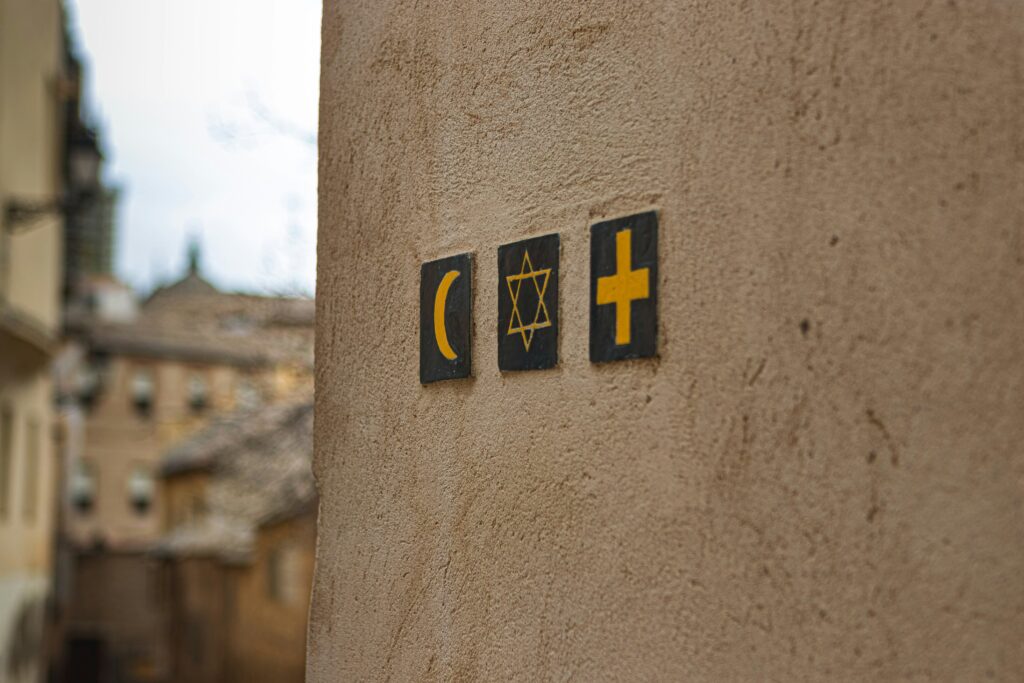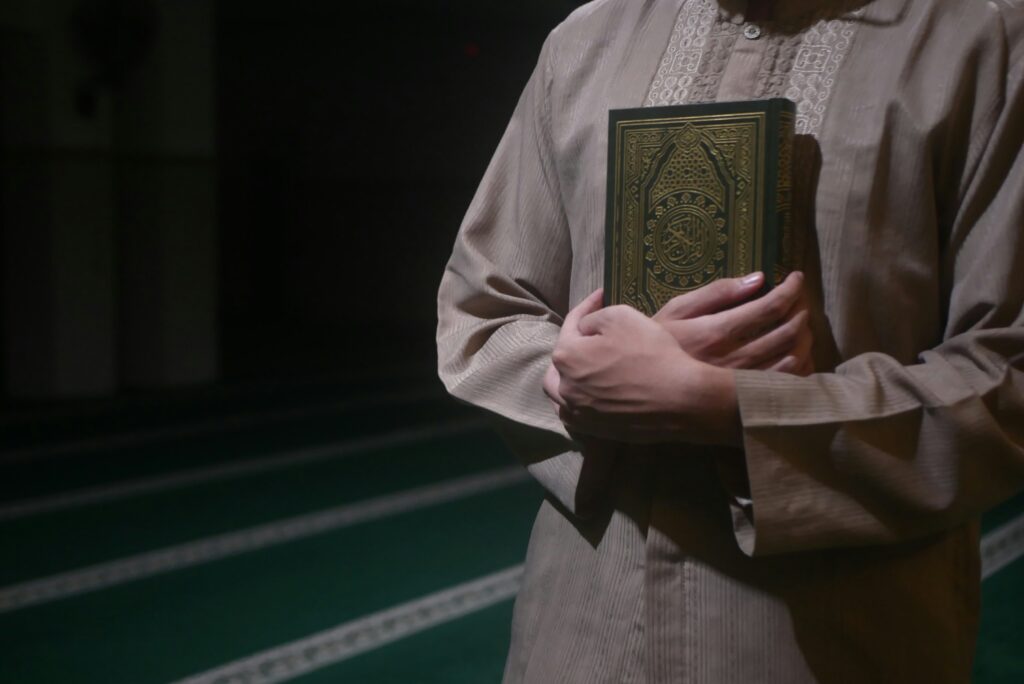
Islam vs Islamism
How liberalism invented Islamism to avoid addressing the most natural facet of human history: religious conflict. By Firas Modad.
In the West, the term ‘Islamism’ has been coined to try to distinguish between the religion in itself and how some of its adherents use it for political-social ends.
According to this distinction, Islam is merely the religion: neutral, uniquely ‘spiritual’, and not to be feared. It is Islamism which is the threat, with its aspirations for world dominance.
The intended implication is to claim that most Muslims separate their political and religious views. And while this may well be the case for many Muslims, the thinking behind this is naïve and intended to reconcile liberalism with the mass migration of Muslims to Western shores.
Using the term Islamism is an attempt to define Islam using Western Christian categories because, even when the proponents of the term do not in fact practise Christianity and might even reject it altogether, their political worldview remains profoundly Christian. For it is only Christian thought which makes such a distinction between Church and State.
Secularists who speak of this separation do not really understand what it is. It is merely a delineation between secular and church hierarchies, not a separation of values.
No religion or belief system of whatever type can ever be totally neutral and not seek to affect society. Even less Islam.
The human mind is religious and ideological. All human beings seek to shape their social and political lives according to their beliefs. Muslims are not unusual in that regard. Catholics (like this author), Evangelicals, Marxists and the woke all want their values to influence the public sphere.
Some Muslims are more religiously committed than others and want their values to play a role in politics because of this. Other Muslims utilise their identity to improve their standing in their community and gain political power. Other Muslims still are indifferent. You can substitute Catholics, Protestants, Orthodox, Wokes or Marxists for Muslims in the previous sentences, and nothing would change. Such is human nature.
It appears to me that Westerners are unable to say the obvious – that Muslims want to live in accordance with Islamic values, and that they identify with Muslim causes, from Kashmir to Palestine to the Rohingya. There is nothing exceptional about this. Christians, Marxists, Jews or liberals naturally want to live in accordance with their values, and identify with their own causes. There is nothing extraordinary in accepting that values and causes differ between these groups.
Westerners perhaps fear saying this because they may be called racist. For them, racism is the greatest sin. For any serious Muslim, Christian or Jew, however, harming one’s neighbour without cause, abandoning one’s own, blaspheming, murdering or stealing are much bigger sins than stating that different groups of people are, in fact, different, and may have different values and espouse different causes.

Those who use the term Islamism hope that, somehow, Muslims might adopt liberal values. They do not explain why Muslims would adopt values which normalise blasphemy and sexual immorality, and prevent society from telling apart men from women.
What exactly is liberalism offering Muslims so that they should adopt it?
It is important to be honest about religious conflict – liberalism is in conflict with Islam, just as it is in conflict with Christianity and just as Islam is in conflict with Christianity and Judaism, and as Christianity and Judaism are in conflict with one another.
The conflict may on occasions be respectful and polite, on other occasions violent. But conflict there is. These religions might, in certain places and times, learn to live alongside each other. As belief systems, however, they are ultimately exclusive of each other.
This was understood by everyone throughout history, until liberalism’s own self-perception changed from being a culturally unique exception to a universally applicable system.
The Fatiha, the opening verse of the Qur’an, ends with a prayer asking God to guide the faithful to the straight path, not that adopted by those under God’s wrath (the Jews) or those who have gone astray (the Christians).
The Qur’an has many verses attacking Christians and Jews, and at least one clearly calling for war against them until they submit in humiliation. It also has some praise for them. Islam is a complex religion. And yet, somehow, most liberals believe that any jihadi, when exposed to liberalism, would adopt it, rather than recoil in horror.
Liberalism has helped Islam improve its standing in its perennial conflict with Christianity, in that it has allowed Muslims to dominate some historically Christian cities without a fight.
It has allowed Muslims to gain political relevance, and sometimes power, in countries with no history of having Muslim populations.
Why would a Muslim adopt the ideology that has so visibly enfeebled Islam’s only civilisational rival?
Since most Muslims in the West are practising, but most Christians are not, liberals are unable to understand what ‘the rise of Islamism’ is: a symptom of the religious conflict between Islam and Christianity, in which liberalism is a handicap to whoever adopts it.
This misunderstanding, a direct result of the liberal worldview, allows Muslims to be open in their disdain for the modern West, while the West falls all over itself trying not to be ‘Islamophobic’.
Anyone familiar with the history of the conflict between Islam and Christianity, however, should have some trepidation about the expanding numeric and political power of Islam. As Muslim numbers grow in the democratic West, we should expect more Muslim assertiveness and more Islamism.
Those who oppose Islam within the secular rules of the game – tricking themselves by the use of the term ‘Islamism’ – end up having to resort to crass racism and/or Islamophobia, or to hate speech laws that are easy to circumvent for sophisticated and truly dangerous radical Muslims, and that mostly get used against the nationalist or religious right.
Put more simply, you can oppose Islam for religious reasons. You have theological, moral and historical arguments to consider it mistaken. But any non-religious argument quickly descends into a rejection of people and their way of life: you don’t like how they behave, how they take over whole areas of a city, how they don’t integrate, and so on.
But that kind of opposition is shallow, ineffective, and lacking in fortitude and resolve. And it backfires, in that it invites Muslims to be even more assertive.
Racism and Islamophobia are not the real challenges to Islam, and neither are hate speech laws, secularism or liberalism. The only true challenge to Islam is Christianity, because Islam is best understood as a Christian heresy.
In major ways Muhammad rewrote Christianity, including denying the key Christian doctrines of the Trinity and Incarnation, and claiming that Christ was never crucified. In doing so, he hollowed out Christianity, permitting himself greater freedom in the use of political violence and escaping the oversight of the Church.
I say the above without the slightest intention of disparaging Muslims or Islam, just as a Muslim who quotes the Qur’an saying that those of us who believe in the Holy Trinity are kuffar (infidels) is not necessarily seeking to disparage me personally. I accept that he wishes me what he considers best for me, which is my conversion to his faith. I reciprocate.

My view is that the Qur’an is wrong, morally and theologically, but that it contains enormous wisdom. It is possible to have cordial, neighbourly relations and indeed lifelong friendships with Muslims while being aware of the religious and civilisational conflict dimensions of Christian-Muslim relations. Conflict, disagreement and even enmity are not reasons for hatred, as Christ teaches us.
The attempted distinction between Islam and Islamism aims to disguise an increasingly necessary debate about the number of Muslims in the West, and a much more important conversation about the role of Christianity in building the values that define the West, and the permanent religious conflict that will always define Christian-Muslim interactions.
We should therefore understand ‘Islamism’ for what it is: a nonsensical neologism created to comfort the materialist liberals who have so badly enfeebled Christendom.
For while a radical Muslim would see authentic Christianity as a real opponent – to be defeated but to be taken seriously – he correctly views liberalism as a distasteful joke.
At most, the committed and politically astute Muslim views liberalism as a game that he has to play in his quest to take over the weak West. He would warn his children against adopting it, while wielding it as a cudgel against his Christian enemies.
Christianity is a solid door to be knocked down. Liberalism is a rotting door, hanging loosely on its hinges, effectively inviting him in.
This article can also be found on Firas Modad’s Love Thy Enemy website along with other articles by him. For Firas’ geopolitical commentary, see his blog Modadgeopolitics.
Like what you’ve read? Consider supporting the work of Adamah by making a donation and help us keep exploring life’s big (and not so big) issues!
Firas Modad
Firas Modad is a Middle East political and security analyst, serving clients in the security, finance, insurance, media and investment industries. He is the founder of Modad Geopolitics.

